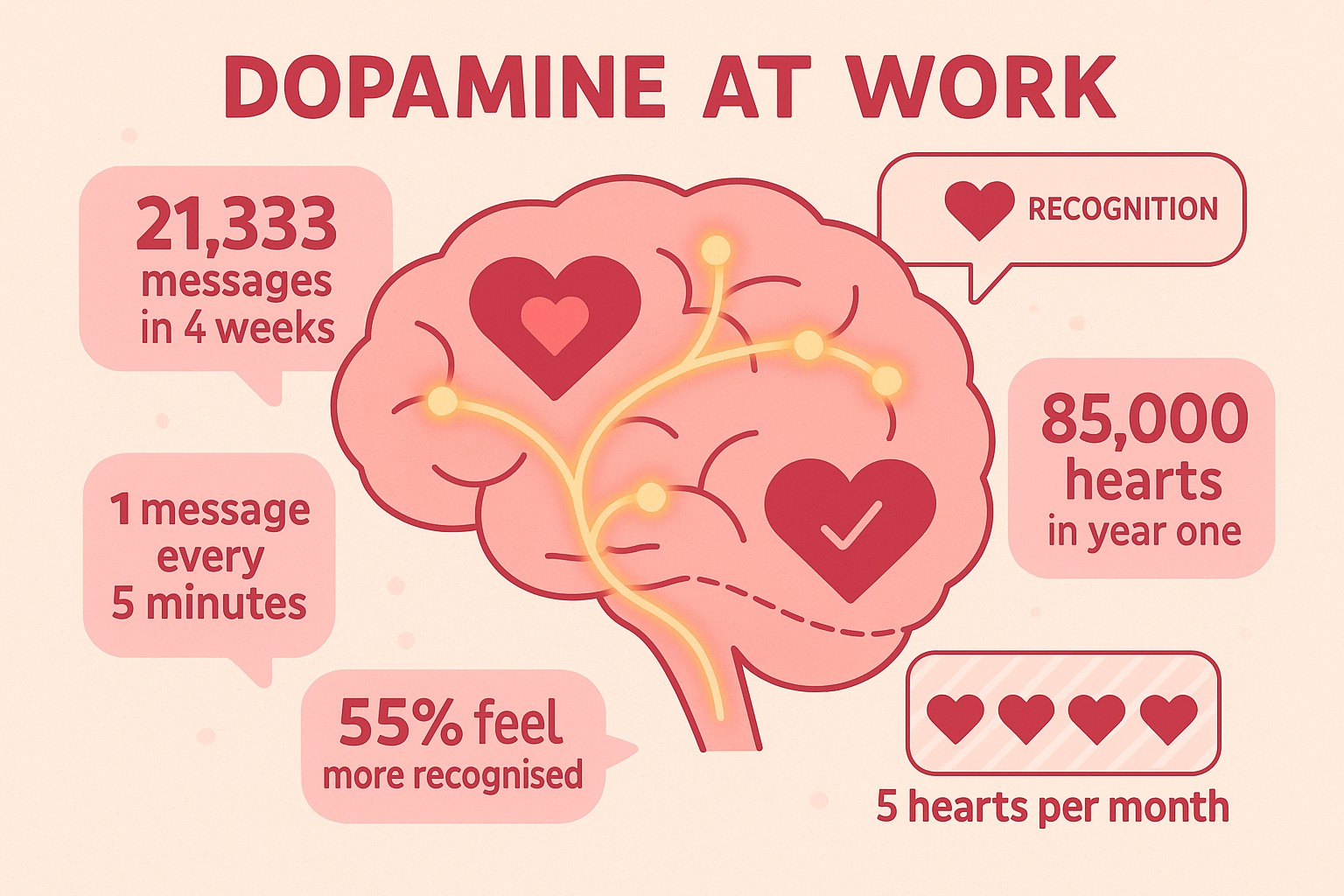Dopamine at Work: 21,333 Hearts Transform NHS Culture
'Barts Hearts' brings dopamine-driven recognition to healthcare
NHS Trust's neuroscience-based peer recognition generated 21,333 messages in four weeks—one every five minutes—winning the 2024 Nursing Times Workforce Award for engagement excellence.


NHS Barts Health unleashed 21,333 peer recognition messages in just four weeks – one every five minutes, day and night – by giving each staff member five digital hearts to share monthly. The programme explicitly triggers dopamine release to reduce stress, driving a 5.6% increase in platform engagement and winning the 2024 Nursing Times Award for transforming culture across five hospitals.
Barts Health NHS Trust's 'Barts Hearts' programme explicitly leverages neuroscience to transform workplace culture, stating that 'receiving recognition triggers the release of dopamine, reducing stress levels.' Launched on Valentine's Day 2024, the programme achieved 21,333 recognition messages in its first four weeks – averaging one message every five minutes, 24/7. With 1,264 rewards claimed in the first month and over 85,000 hearts shared in year one, the platform demonstrates healthcare workers' hunger for peer appreciation when given accessible tools.

Evidence-Based Engagement Impact
The programme drove measurable engagement improvements—intranet daily hits increased from 12,640 to 13,350, a 5.6% rise as staff checked recognition feeds. NHS Employers' analysis shows peer recognition correlates with staff being 2x as likely to remain in positions, while research confirms peer-to-peer recognition is 36% more likely to have positive impact than manager-only recognition. The Trust won Best Employer for Staff Recognition and Engagement at the 2024 Nursing Times Workforce Awards, with Recognition Engagement Manager Georgina McKenzie-Hurry noting: 'I never imagined it would become such a success, with a message being sent every five minutes, all day, every day.' Over 15,000 staff have received at least one heart, with 11,000+ actively sending recognition.

Barts Hearts proves that explicitly designing for dopamine release through peer recognition creates viral engagement in demanding healthcare environments. The programme's success—21,333 messages in four weeks, sustained engagement with 85,000+ hearts shared annually—demonstrates how neuroscience-informed design transforms workplace culture. As an NHS Employers best practice case study, it provides a replicable model for healthcare organisations seeking evidence-based engagement solutions.







.svg)